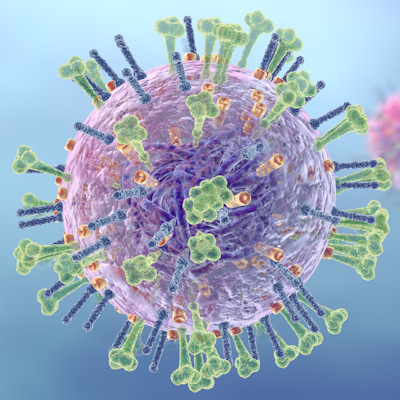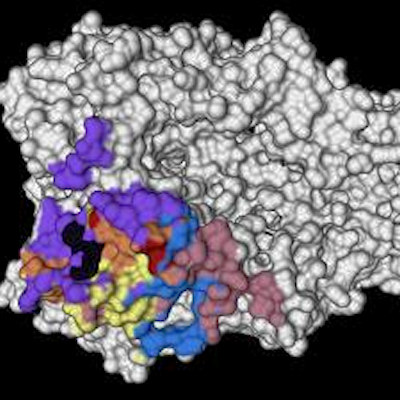October 7, 2022 -- Researchers at the Icahn School of Medicine at Mount Sinai and other institutions have identified the gene TDRD7 as a key regulator against influenza A virus (IAV), which causes respiratory tract infections in up to 20% of the human population.
Their findings, published October 5 in the journal Science Advances, could facilitate the development of novel therapeutic interventions against influenza virus infection. The study was supported by the National Institutes of Health's National Institute of Allergy and Infectious Disease.
IAV causes up to 500,000 deaths each year worldwide. Host infection begins an immunological response composed of a series of molecular processes. IAV can infect different species while physiological and genetic differences among these hosts can contribute to different responses, along with some shared responses.
The study used RNA sequencing to analyze gene expression in cells and tissues collected from IAV-infected humans, ferrets, and mice over time, identifying multiple key defense processes specific to each species. The researchers found that one gene, TDRD7, played a key role in immunological defense mechanisms against IAV across species.
TDRD7 encodes a Tudor domain-containing protein -- a protein involved in epigenetic regulation. Given this discovery, the researchers conducted subsequent experiments inhibiting TDRD7 function, resulting in an increase of virus replication in IAV-infected hosts.
"Identifying both common and species-specific responses to influenza is essential in developing effective therapies for the flu and can help inform future research of other respiratory infections, such as COVID-19," first author Christian Forst, PhD, assistant professor at Icahn Mount Sinai, said in a statement.
Copyright © 2022 scienceboard.net










